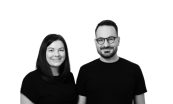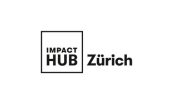
January 2014
Bookbridge
Carsten Rübsaamen doesn’t want your money
The founder of awardwinning social enterprise Bookbridge has already changed the lives of thousands with learning centres in Mongolia and Cambodia – and, sure, donations are always welcome. But his vision goes beyond this: he wants to change the hearts and minds of future business leaders.
By Robynn Weldon
Carsten Rübsaamen is young (just 32), and in his typical T-shirt and scruffy stubble, looks younger. With his casual demeanour and earnest, optimistic, do-gooding attitude, he could be an overgrown Boy Scout – which he is.
Rübsaamen is also a hardheaded, highly motivated PhD with years of business consultancy work behind him and an eye for opportunity. He’s confident in dealing with people at the highest level and speaks the corporate language fluently (four languages, actually – English, German, French and Spanish). And he thinks big.
So while scouting took him on a Mongolian adventure and his commitment to helping others started a book donation drive, it’s business acumen that turned Bookbridge into a successful social enterprise. And it’s his very personal genius, the combination of these two aspects, that underpins the long-term goal: inspiring the managers of tomorrow to understand what a difference they can make, and so, changing the world even beyond the thousands reached by Bookbridge’s existing learning centres.
How it started: scouts’ honour
By 2005, at age 23 – having just finished his MBA – Rübsaamen should have long since quit scouting. Instead, he took a scout group on an improvisational tour of Mongolia, guided by local scouts, where they visited a school and discovered children with great curiosity about the world, working knowledge of English, a dedicated teacher and a hunger to learn… but with an empty library.
On returning to Germany, as well as initiating an exchange programme with some of the Mongolians they had met, the scouts started to collect books and sent them back to the school. Three months later, Rübsaamen heard from the teacher, Uuganaa Gantumur, that her class had doubled in size – all thanks to the 40 picture books she had received! Since Rübsaamen was planning to visit again in the summer, Gantumur suggested he might bring some more books.
So in January 2009 he contacted the Bavarian minister for education, who put out a call to all schools in the province and collected 7,000 books. A radio station joined the campaign, bringing in another 6,000, and he got a sponsored van to collect them all.
With a container of books on the way, it was obvious that the school library would no longer be able to hold everything. Gantumur then proposed setting up a learning centre, staffed by a librarian and with herself as the teacher. So they had to develop a full long-term business plan, addressing the problem of finance.
The new plan comprised a community learning hub, providing Mongolian as well as English books, classrooms and a conference room for peer learning, with locals teaching locals on subjects ranging from nutrition to environmental management. The English and IT courses offered drew interest from local businesses, who paid for employee training; teachers too were getting training, improving the quality of community education. Charging a minimal fee kept the offer affordable, but enabled the centre to be self-sufficient by the end of the first year. They were even able to provide free workshops and activities to the community.
By 2009 Rübsaamen was considering the future growth of the project, and facing what he saw as the three key issues: finding books, transporting them to Mongolia, and sorting out finance. He started by going to the Frankfurt Book Fair, and came away with another 20,000 books, all brand new.
For the second challenge, he got five minutes in a board meeting at shipping firm Kuehne & Nagel. His pitch went down well: he was able to show the impact on a community of 20,000 people from just one container of books. The question they asked was, how many containers did he need?
“Think big, I thought… maybe a hundred?” he smiles.
“They laughed at me. ‘With one container,’ they said, ‘we can reach 20,000 people. So with 100 we can reach 2 million people. Do you know how many containers fit on one of our ships? Fourteen thousand!’”
So challenge two was solved. And then came the question of finance.
Down to business
Rübsaamen had already decided he didn’t want to take any of the donations he was receiving to cover administrative costs. “Each franc could be put to better use in Mongolia,” he maintains.
But he realised that the potential of the project was such that he couldn’t continue to work on it part-time (while at the same time earning a living through consultancy). He had to commit.
“I thought again about my contacts from business school. Now these people all work in companies which do international projects, but they have never experienced the other side of the bridge – the impact their decisions have on people in Vietnam, in Thailand, in China. Isn’t there a way to bring more humility, but also intercultural skills, to young talents who engage in projects in emerging economies?”
And so the leadership programme was born. Consulting experts he knew from his own studies at WHU Otto Beisheim School of Business, Rübsaamen devised a plan to provide intensive part-time training in project management – offering an opportunity for junior members of large corporations to experience real entrepreneurship, instead of being a small cog in a big wheel.
While continuing with their regular jobs, Bookbridge trainees work on setting up further education centres in Asia, and so learn about modelling, launching and monitoring a business, working in an emerging economy, and leading an intercultural team.
The programme includes management theory, taught by subject matter experts, and professional coaching to ensure that participants reflect on their experiences. (Bookbridge works in official partnership with WHU, and is looking for a Swiss university partner.) And there’s a subtext.
“The goal is to teach business and leadership skills in an innovative way, but also to light that fire in every participant’s heart, telling him or her that they don’t have to wait until they are 65 to start a foundation and fund some project,” Rübsaamen emphasizes. “That they can link for-profit and non-profit goals already, with the skills and the network they have, in their daily job.”
Bookbridge itself has devised a very successful business model and now employs eight salaried staff, besides Rübsaamen himself. It charges a Fr12,500 learning fee, which finances the organisation’s costs and enables them to funnel all donations directly to Asia. Of the training fees, 20% goes directly to the learning centres – which now total 10, including two in Cambodia.
The company took a Fr300,000 loan to cover its startup costs and received as much again in grant from two Swiss foundations. (Rübsaamen moved from Germany to Basel in April 2010, when his wife got a job at Roche. Bookbridge is now based in Basel and Fribourg.) So far, four leadership programmes have been run, training 31 leaders.
On the other side of the bridge, in Asia, all the work is geared towards empowering the local communities – once the learning centres have been built – to manage their own projects. The Mongolian Minister of Education is being informed by the curriculum developed by Gantumur. All funding is provided in the form of a zero-interest loan, to be repaid over 10 years; if it originally came from grant, the repaid money stays in the country, to fund future projects.
It’s a shining example of successful social enterprise, and Rübsaamen’s work has been rewarded with an Ashoka fellowship – providing access to, and support from, a global network of leading social entrepreneurs. It’s a stamp of approval, a level of security (coming with a living stipend), and crucially, when it comes to convincing corporations to sign their employees up for the programme, it helps him get in the room.
Getting in that room is the first step. The next step is to get inside their heads.
Change the world now
For a clue to how this might work, consider Rübsaamen’s early steps in business. He had never planned to be a social entrepreneur. “I didn’t see myself as a social worker,” he explains. But there were signs that his personal values – the scout’s drive to serve, to help those weaker than himself, to seek ways to improve the world around him – were not perfectly aligned with conventional corporate life.
One of the internships he did during his business studies was for a Sri Lankan cement company, his first exposure to emerging economies. They set him the challenge of figuring out why a bag of cement left the factory costing 400 rupees, but was finally sold for 650 rupees. He took a car and a translator and literally followed the cement from factory to market. Of course, it followed a very inefficient path, passing through the hands of many middlemen and losing margin along the way. As he followed the cement’s journey he was welcomed by these traders, even invited into their homes for a meal or overnight stay, and he saw how important this cement distribution was to them and their families.
So when he gave his report, he laid out the problem as he saw it: on the one hand, selling the cement at a lower price, through more efficient distribution, would enable customers to build more and bigger homes. On the other, the cement was providing social value to all the households it touched along the way. Quite the conundrum.
“Carsten,” said his boss, “I don’t think you’ve really understood the goal of this exercise. We want to know how we can keep more of that 250-rupee margin for ourselves.”
This gave Rübsaamen perhaps his first inkling that he didn’t want to become part of that system. But still, his parents advised him to stay focused on business success, saying: “You can start a foundation when you’re 65.”
This is a line he’s mentioned before, and an idea that clearly bothers him. The stealth mission of Bookbridge, the lesson it hopes to teach those future CEOs in its training programme, might be summed up as this: you don’t have to wait till you’re 65. You can change the world right now. And you can do it through solid business – not charity.
That’s an ambitious message. But as a seed planted in the minds of 31 junior executives so far, just imagine what it could grow into.
Source: Swiss News
Subscribe to Our Newsletter
Never miss an update – sign up for our newsletter published every 3-4 weeks and stay connected with our community.



